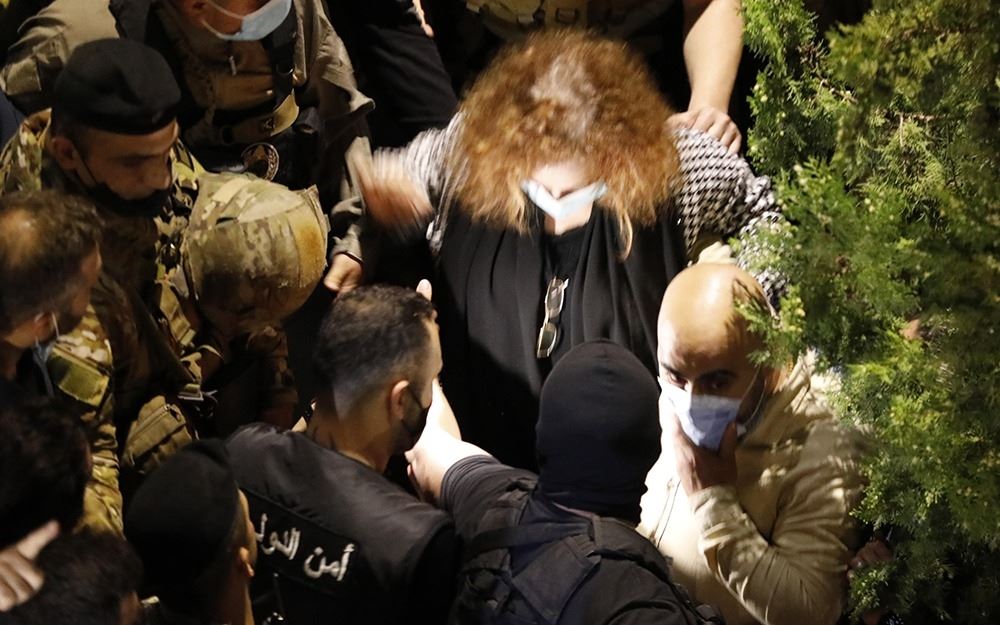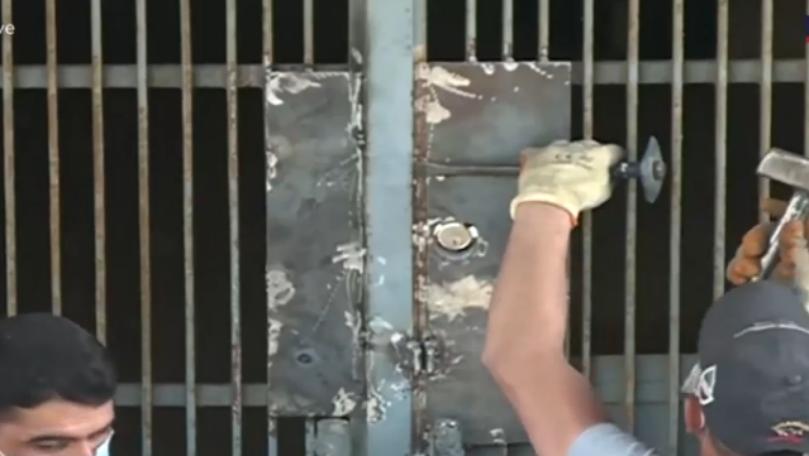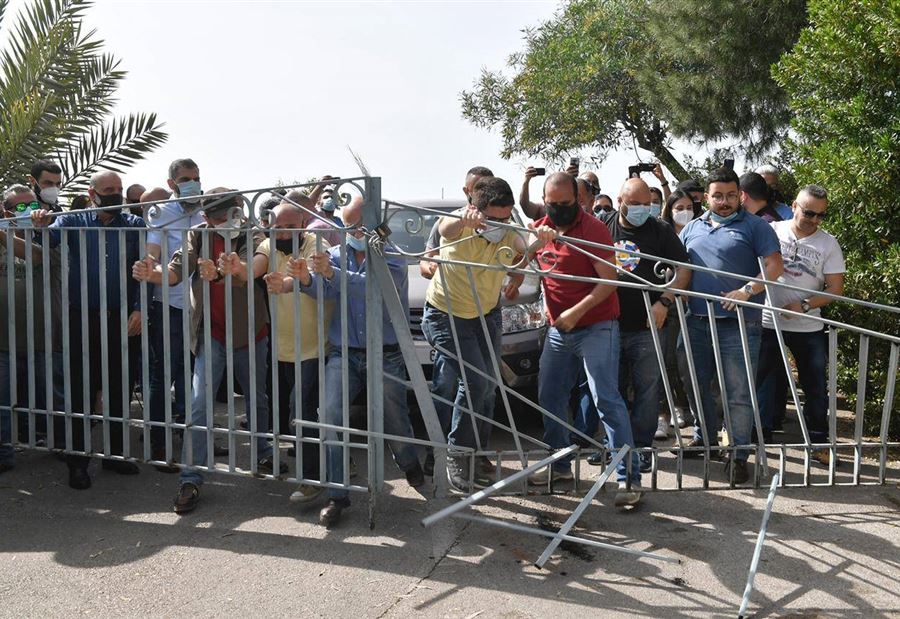
- Judge Ghada Aoun staged a third raid on the offices of Mecattaf, a day after the Supreme Judicial Council referred her to the Judicial Inspection Authority
- She arrived at Mecatta office with her bodyguards, who are members of State Security, and broke the locks of metal gates at the entrance
- If she persists in defying judicial decisions she could be referred to the Disciplinary Council and face prosecution, a source told Arab News
BEIRUT: A Lebanese judge on Wednesday raided the offices of Mecattaf money exchange company in Awkar for a third time, a day after the Supreme Judicial Council referred her to the Judicial Inspection Authority (JIA).
Judge Ghada Aoun, Mount Lebanon’s public prosecutor, was accompanied by supporters of the Free Patriotic Movement (FPM). She was previously dismissed from an investigation into possible breaches of currency export rules.
“What is happening is a rebellion that will duly be dealt with,” a judicial source told Arab News.
Other sources revealed that the head of the JIA, Judge Barkan Saad, called Aoun as she was forcing her way into the business’s premises and asked her to leave, but she refused to comply.
“What Judge Aoun is doing goes against the statements she made during her hearing before the Supreme Judicial Council and this is unacceptable,” the judicial source said.
“We will act accordingly and she could be referred to the Disciplinary Council, meaning that she could be prosecuted, because what she is doing falls under the judges’ crimes section. If the judiciary moves forward with this measure, she will be prosecuted by the prosecutor general.”
Mecattaf is one of the largest money and gold-trading companies in Lebanon. Aoun arrived at its offices in Awkar, Beirut, with her bodyguards, who are members of State Security, and broke the locks on metal gates at the entrance as her supporters cheers and shouted: “May God be with you, Ghada Aoun.”

They sat on the ground in the yard outside the building while Aoun entered it accompanied by a financial expert. The Internal Security Forces cleared the yard of protesters but allowed them to remain on the street outside.
Journalists were prevented from accompanying Aoun into the building but before she did so she told them: “I was prohibited from entering the company with my car, so I entered on foot. I was not allowed to enter because the company’s data exposes the people that smuggled their money abroad. I ask the judiciary to stand with me because these are the rights of the people, not my own.

“What was issued by the Supreme Judicial Council is just a statement, not a decision, and I have yet to be informed of it. Preventing me from entering with my car is a recognized crime and I call on the security forces and the president to intervene.”
Lebanon’s prosecutor general, Ghassan Oueidat, previously transferred the financial-transactions case that Aoun was handling to Judge Samer Lishaa. Aoun refused to abide by the decision and continued her investigation. She is backed politically by President Michel Aoun and his political bloc, represented by the FPM.
There are fears that the issue will become a political battle that will lead the international community to believe that while some officials are trying to fight corruption in Lebanon, others are attempting to prevent this.
“Judge Aoun is saying that Mecattaf Company possesses data with the names of all those who smuggled their money abroad before the decision to block deposits in dollars in Lebanese banks was issued in 2019,” a judicial source told Arab News. “However Michel Mecattaf, the director and one of the company’s shareholders, confirmed that his company is abiding by the Code of Money and Credit, meaning that it is subject to banking secrecy.”
Mecattaf has also stated that he is following the law “and a witness in this case, not a suspect.”
Groups of Judge Aoun’s supporters, using the names United Alliance and Cry of the Depositors, issued a statement in which they said: “Mecattaf’s representatives and the employees of his company are suspiciously refusing to hand over the remaining data, bearing in mind that the data extracted so far shows loopholes in the chains of (US dollar) transactions abroad during a crucial period from before the October Revolution in late 2019 to early 2020.
“This has pushed Judge Aoun to head to the company’s headquarters again, as the requests of the financial expert to obtain the accounting records and the documents related to money transactions were denied.”
In February last year, Mecattaf said that “shipping (of currency) is done under prior authorization from the Central Bank and under the supervision of the Banking Control Commission. The money we ship is ours, whether in dollars, pounds sterling or euros.
“So if we want to ship money abroad from Lebanon, we buy it as a commodity and transfer it aboard. Most importantly, money shipping is done exclusively from and to a banking or financial institution. There are no limits to shipping but we are not allowed to transfer money to a third party.”
Mecattaf also said: “Since the beginning of 2019, I have been receiving more than 100 calls daily from most of the politicians, bankers and rich people, asking me to transfer their money abroad. This went on for months.
“Carrying out such a thing is very difficult. It cannot be done unless a large majority of bank directors and employees are a part of it,” otherwise transactions that violate rules will not go unnoticed, he added.
Arab News

Leave a Reply
You must be logged in to post a comment.